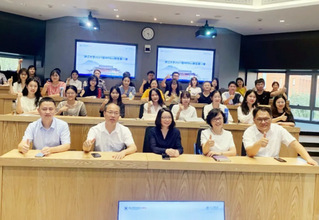Evolutionary-shaped goal orientation in Homo sapiens: how life sciences contribute to a better understanding of salespeople as knowledge brokers
时间:2019年12月26日(周四) 下午11:00-12:30
地点:浙江大学紫金港校区行政楼1004会议室
主讲人:Prof.Willem Verbeke,
摘要:
Life sciences uses the Latin name Homo sapiens to describe humans, an animal species. First, we discuss how “popular beliefs” about the brain have inhibited the progress of life science applications in the field of selling. Subsequently, we present the Tinbergen’s evolutionary perspective of life sciences and use “ultimate” and “proximate” explanations to understand the salesperson’s main goal of becoming a knowledge broker. First, an ultimate explanation describes how the Homo sapiens evolved to acquire a big brain through natural selection processes, which led to the emergence of multiple cultures. This evoked a runaway selection of genes affecting brain functioning called “cultural drive hypothesis.” Second, the proximate view explains how, for example, neural-endocrine mechanisms modulate knowledge brokering. We explore five hard-wired processes associated with a salesperson’s skill in knowledge brokering, applying factual insights obtained from neuroscience, endocrinology, and genetics. Finally, we outline different strategies that researchers who seek to make new contributions to the field can undertake in doing research on selling.
主讲人简介:

Willem Verbeke is an emeritus professor at the Erasmus School of Economics (ESE), Erasmus University Rotterdam. His research interests lie in neuromarketing, sales and account management, emotions and epigenetics. His work has been published in Journal of Marketing Research, Journal of Applied Psychology, Journal of Management.
浙江大学神经管理学实验室,yl23411永利数据科学与管理工程学系,yl23411永利“脑与管理决策”特色创新团队,浙江大学双脑计划之“神经管理学”交叉创新团队联合主办
欢迎广大师生前来参加!






